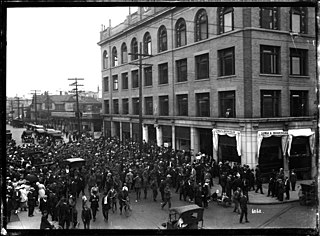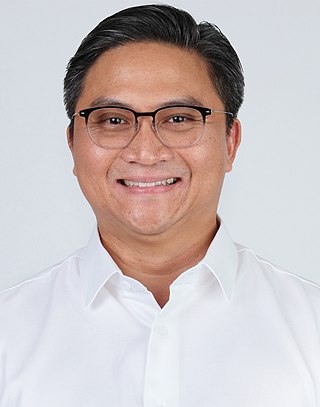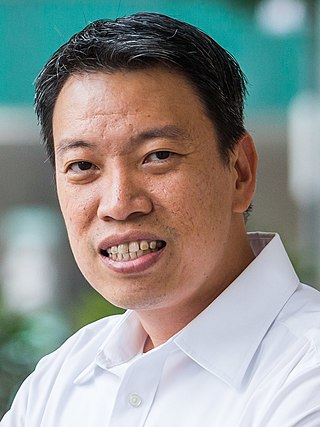Labour laws are those that mediate the relationship between workers, employing entities, trade unions, and the government. Collective labour law relates to the tripartite relationship between employee, employer, and union.
Finnish national income policy agreements or comprehensive income policy agreements are tripartite agreements between Finnish trade unions, employers' organizations, and the Finnish government. They are policy documents covering a wide range of economic and political issues, such as salaries, taxation, pensions, unemployment benefits, and housing costs. They represent collective bargaining taken to its logical maximum, reaching virtually all wage-earners. Their enforcement is made easier by the universal validity of collective labour agreements. However, they are voluntary agreements and are not considered government legislation, i.e. they do not represent central planning of the economy.

The Canada Labour Code is an Act of the Parliament of Canada to consolidate certain statutes respecting labour. The objective of the Code is to facilitate production by controlling strikes & lockouts, occupational safety and health, and some employment standards.

The National Trades Union Congress (NTUC), also known as the Singapore National Trades Union Congress (SNTUC) internationally, is the sole national trade union centre in Singapore. NTUC is at the heart of the Labour Movement which comprises 59 affiliated trade unions, 5 affiliated trade associations, 10 social enterprises, 6 related organisations as well as a growing ecosystem of U Associates and enterprise partners. Together, it helms May Day celebrations and organises an annual rally in support of workers' solidarity and commitment to tripartite partnership. The NTUC has had a symbiotic relationship with the People's Action Party (PAP) since its inception in 1961.
Social dialogue is the process whereby social partners negotiate, often in collaboration with the government, to influence the arrangement and development of work-related issues, labour market policies, social protection, taxation or other economic policies. It is a widespread procedure to develop public policies in Western Europe in particular.
Community unionism, also known as reciprocal unionism, refers to the formation of alliances between unions and non-labour groups in order to achieve common goals. These unions seek to organize the employed, unemployed, and underemployed. They press for change in the workplace and beyond, organizing around issues such as welfare reform, health care, jobs, housing, and immigration. Individual issues at work are seen as being a part of broader societal problems which they seek to address. Unlike trade unions, community union membership is not based on the workplace- it is based on common identities and issues. Alliances forged between unions and other groups may have a primary identity based on affiliations of religion, ethnic group, gender, disability, environmentalism, neighborhood residence, or sexuality.

Lim Boon Heng is a Singaporean former politician. A former member of the governing People's Action Party (PAP), he was a Member of Parliament (MP) between 1980 and 2011, and had served in the Cabinet between 2001 and 2011. He also served as Chairman of the People's Action Party between 2004 and 2011.

Labor relations is a field of study that can have different meanings depending on the context in which it is used. In an international context, it is a subfield of labor history that studies the human relations with regard to work in its broadest sense and how this connects to questions of social inequality. It explicitly encompasses unregulated, historical, and non-Western forms of labor. Here, labor relations define "for or with whom one works and under what rules. These rules determine the type of work, type and amount of remuneration, working hours, degrees of physical and psychological strain, as well as the degree of freedom and autonomy associated with the work." More specifically in a North American and strictly modern context, labor relations is the study and practice of managing unionized employment situations. In academia, labor relations is frequently a sub-area within industrial relations, though scholars from many disciplines including economics, sociology, history, law, and political science also study labor unions and labor movements. In practice, labor relations is frequently a subarea within human resource management. Courses in labor relations typically cover labor history, labor law, union organizing, bargaining, contract administration, and important contemporary topics.

In 1948, the Communists and the British colonial government in Malaya entered a period of guerrilla fighting which has become known to history as the Malayan Emergency.
Labour in India refers to employment in the economy of India. In 2020, there were around 476.67 million workers in India, the second largest after China. Out of which, agriculture industry consist of 41.19%, industry sector consist of 26.18% and service sector consist 32.33% of total labour force. Of these over 94 percent work in unincorporated, unorganised enterprises ranging from pushcart vendors to home-based diamond and gem polishing operations. The organised sector includes workers employed by the government, state-owned enterprises and private sector enterprises. In 2008, the organised sector employed 27.5 million workers, of which 17.3 million worked for government or government owned entities. The Human Rights Measurement Initiative finds that India is only doing 43.9% of what should be possible at its level of income for the right to work. Employees are routinely taken advantage of by their employers because of loose labour laws across all industries in India.
Tripartism is an economic system of neo-corporatism based on a mixed economy and tripartite contracts between employers' organizations, trade unions, and the government of a country. Each is to act as a social partner to create economic policy through cooperation, consultation, negotiation, and compromise. In Tripartism, the government has a large role in the economy and engages in negotiations between labor unions and business interest groups to establish economic policy.
South African labour law regulates the relationship between employers, employees and trade unions in the Republic of South Africa.
The Progressive Wage Model (PWM), also known as the progressive wage for short, is a wage structure in Singapore, advocated by the National Trades Union Congress (NTUC), the sole national trade union in Singapore. The objective of the Progressive Wage Model has been to increase the salaries of workers through the enhancement of skills and improving productivity.
In Singapore, May Day is celebrated on 1 May each year as a mark of solidarity amongst workers. The celebration of May Day as a public holiday began only in 1960 after the People's Action Party (PAP) came into power. Before then, only workers defined as such under the Labour Ordinance 1955 and those defined as industrial clerks under the Clerks Employment Ordinance 1957 were given paid holidays.
The labour movement or labor movement consists of two main wings: the trade union movement or labor union movement on the one hand, and the political labour movement on the other.

Saktiandi bin Supaat is a Singaporean politician and economist. A member of the governing People's Action Party (PAP), he has been the Member of Parliament (MP) representing the Toa Payoh East division of Bishan–Toa Payoh GRC since 2015.

Melvin Yong Yik Chye is a Singaporean politician, union leader and former police officer. A member of the governing People's Action Party (PAP), he has been the Member of Parliament (MP) representing Radin Mas SMC since 2020 and previously the Moulmein–Cairnhill division of Tanjong Pagar GRC between 2015 and 2020.
K. Thanaletchimi is a Singaporean labour unionist and was a Nominated Member of Parliament of Singapore from 24 March 2016 to 21 September 2018.

In November 2012, bus drivers in Singapore initiated a wildcat strike, which lasted for two days and involved more than a hundred Chinese drivers at the public transport operator SMRT Corporation. Some of the strikers were later deported or imprisoned.








